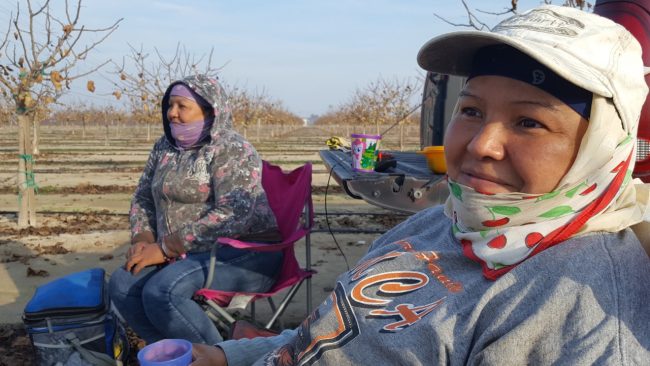Ag Unite Addresses Critical Ag Issues
Ag Unite Brings Stanislaus County Together
By Jessica Theisman, Associate Editor
The Stanislaus County Farm Bureau was recently recognized with a Program of Excellence Award from the American Farm Bureau for its Ag Unite program.
One of the big goals of Ag Unite is gathering money for political action. “We raised money for political action, and we also raised money for legal defense funds because there’s a lot of lawsuits that are happening, where a lot of people have had issues with government overreaching,” said Wayne Zipser, Executive Director of the Stanislaus County Farm Bureau.
An example of government overreach is with John Duarte of Duarte Nursery in Stanislaus County. That case involves Duarte Nursery versus the Army Corps. of Engineers. The court ruled that the company violated the Clean Water Act by plowing its property, even though the Act exempts normal farming practices.
“We’re looking to raise money for that and for a variety of other things that we know that are going to come along. We know that it’s not the last thing that’s going to happen, certainly not the first. We need to get elected people in the legislature who understand. We must have people that have more of a moderate and an understanding of what agriculture is, what it’s based with, and how we can be able to survive in California,” Zipser said. “The farmers and I today field calls constantly. We’ve got some new legislation that has come along, and it’s costing them a lot of money. It’s costing them a lot of things, and they’re fed up. We need to get more involved, and that’s what Ag Unite was all about. Getting more people involved and trying to bridge everyone together, not only if you’re a farmer, but the tractor salesmen, the seed sales folks, the car dealerships, the insurance companies.”
Zipser explained that these ancillary companies are involved when agriculture is attacked. “They, our consumers, and the very people that rely on the farmers and ranchers are attacked. [Those] who not only provide jobs, but also provide food in a safe and reliable food supply.”
Stanislaus-area farmers truly wanted to see Ag Unite happen, according to Zipser. They are pushing to get other farm bureaus to get involved and participate in events to keep the discussions going. “Again, we only represent 1 percent of the population of the producers, so we have to speak with a loud voice,” he said.
One of the major, potentially devastating regulations for Stanislaus County farmers is the California Water Resources Control Board’s plan to take 40 percent of the water from the Tuolumne, Stanislaus and Merced rivers to increase flows in the Sacramento Delta for salmon.
Those who attended the meeting about the plan in December were not just farmers. They were teachers, public safety folks and the district attorney. According to Zipser, they all talked about what the potential devastation if 40 percent of the flow from the Tuolumne, Merced and Stanislaus rivers was diverted, and the impact to not only local economies, but even crime and school children.
“This is what unification is. It’s uniting and protecting our industry because it is our number one industry here in Stanislaus County. We have some of the biggest food processors in the world that reside right here in our county. It is vital for the health of our communities to push back and to fight this,” Zipser said.
Another regulation that passed last year was the overtime bill, which forces farmers to pay more overtime for the extra hours that Zipser said farm workers wanted to work to earn more money. Now, they’re going to get paid less.
“Sometimes, there is unintended consequences to legislation. It may be the very same people who wanted to protect those that they thought they were protecting … they’re hurting them because it’s going to reduce their hours, and it’s going to reduce money in their pocket,” Zipser said. “We don’t like that, because we want to make sure that our folks who are working for us in this industry are protected. Our farmers and ranchers do that without question. They are part of the family. Unintended consequences are what I believe that this overtime bill was going to create.”
Of course, the farm industry wants everyone to thrive: the pruners, the tractor drivers, the welders, the harvester, the irrigators, and the mechanics.
According to Zipser, farmers were talking about how some of these workers have been employed with them for 20 to 40 years, have bought homes and put their kids through college and have thrived.
“This is the way they did business in the past, and somebody comes along and they want to change it all up. Again, an unintended consequence. That farm worker who could send their child through college might not be able to now or won’t be able to buy that home, and that is the American dream. We want to buy a home and we want to make a better life for our kids. Sometimes things step in the way of that,” Zipser said.
“The farmers contribute so much, if you take everything into consideration. They are truly our folks who are heroes.”













